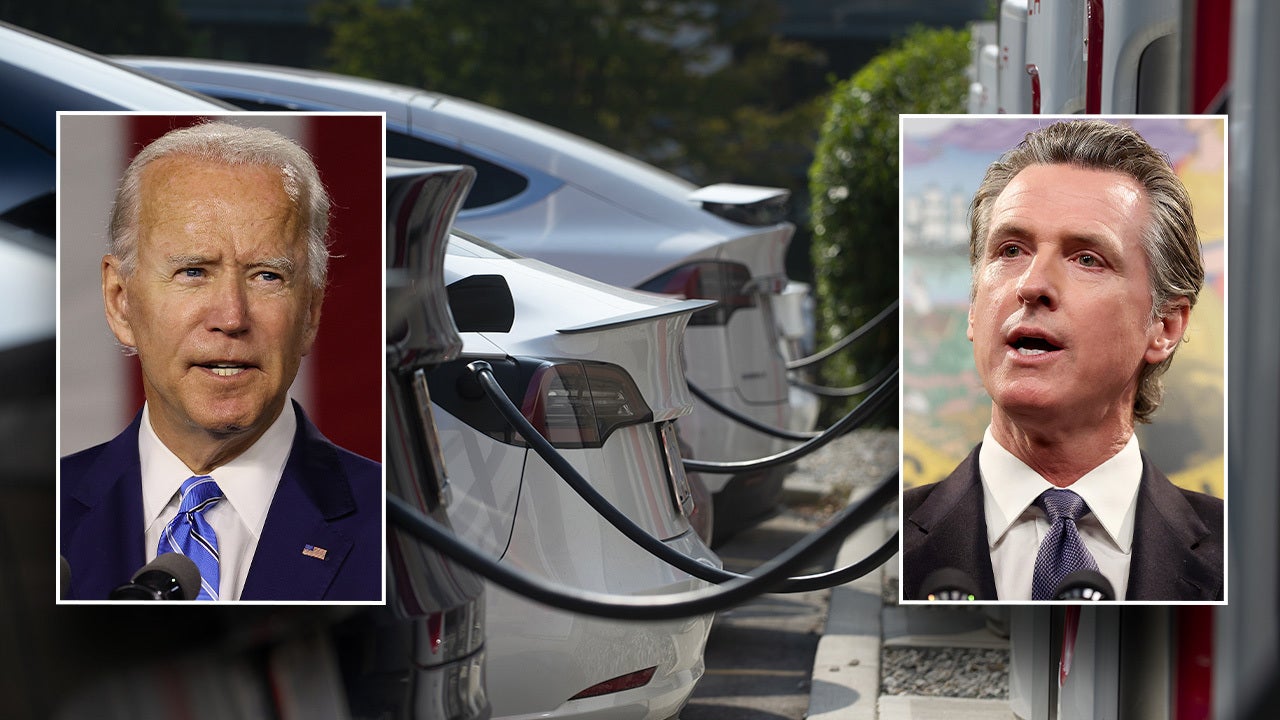Electric Vehicle Mandate Faces Strong Opposition From Dealers

Table of Contents
Financial Concerns of Dealerships Facing EV Mandates
The shift to electric vehicles presents significant financial hurdles for car dealerships, threatening profitability and potentially forcing closures for smaller businesses. The high upfront investment required for EV infrastructure, lower profit margins on EVs, and uncertainty about future EV demand all contribute to this growing concern.
High Upfront Investment Costs for EV Infrastructure
Upgrading dealerships to accommodate EV sales and service requires substantial financial investment. This includes:
- Installation of charging stations: The cost varies greatly depending on the number of chargers, their power capacity (Level 2 vs. DC fast charging), and the necessary electrical grid upgrades. A single DC fast charger can cost tens of thousands of dollars, and smaller dealerships may need multiple units to meet demand.
- Specialized tools and equipment: EVs require specialized tools for diagnosis, repair, and maintenance, adding to the initial investment. This includes equipment for high-voltage battery work, requiring specialized training for technicians.
- Technician training: Training technicians to service EVs is crucial but expensive. Dealerships need to invest in specialized courses and training programs to ensure their staff possesses the necessary expertise to handle the complexities of EV technology.
These costs disproportionately impact smaller dealerships, potentially pushing them out of the market if they cannot secure sufficient financing or quickly generate sufficient revenue from EV sales to offset the investment.
Lower Profit Margins on EVs Compared to Gasoline Vehicles
Currently, many dealerships report significantly lower profit margins on EV sales compared to gasoline-powered vehicles. This is due to several factors:
- Increased competition: The EV market is becoming increasingly competitive, with established automakers and new entrants vying for market share, leading to price pressures and lower profit margins for dealerships.
- Government subsidies: While government subsidies aim to incentivize EV adoption, they often reduce the final sale price for consumers, thus impacting the dealer's profit margin.
Uncertainty about Future EV Demand and Market Volatility
Predicting long-term EV adoption rates remains challenging. While the trend is clearly toward increased EV adoption, the pace of this transition is uncertain. This uncertainty creates significant risk for dealerships investing heavily in EV infrastructure. If EV demand doesn't meet expectations, these dealerships could face substantial financial losses on their investments. The volatile nature of the automotive market further exacerbates this risk, making it difficult for dealerships to accurately forecast their future needs and investment strategies.
Operational Challenges Related to the Electric Vehicle Mandate
Beyond the financial concerns, the electric vehicle mandate presents several operational challenges for dealerships.
Lack of Trained Technicians and Specialized Service Expertise
A significant obstacle to EV adoption is the shortage of trained technicians capable of servicing and repairing EVs. High-voltage batteries and complex electronic systems require specialized knowledge and skills. The lack of qualified personnel can lead to longer service times, increased customer wait times, and potentially impact customer satisfaction. Investing in comprehensive training programs is crucial but requires substantial financial and time commitment from dealerships.
Inventory Management Challenges with EVs and Diverse Models
Managing EV inventory presents unique logistical challenges. Dealerships need to consider not only the variety of EV models but also their different charging requirements, battery storage needs, and the potential need for specialized transportation and handling equipment for these high-voltage vehicles.
Changes in Sales Processes and Consumer Expectations
Selling EVs differs significantly from selling traditional gasoline vehicles. Dealerships must adapt their sales processes to address consumer questions and concerns about charging infrastructure, range anxiety, and the overall technological aspects of EV ownership. Consumer expectations regarding customer service and technological support for EVs are also evolving, requiring dealerships to invest in training and technologies to meet these expectations.
Dealer Advocacy and Proposed Solutions
Faced with these challenges, dealer associations are actively lobbying against overly stringent mandates and advocating for a more gradual and supportive transition.
Lobbying Efforts by Dealer Associations Against Overly Stringent Mandates
Dealer associations are actively engaged in lobbying efforts to influence policy decisions related to EV mandates. They are advocating for more realistic timelines, government support, and policies that consider the financial and operational realities faced by dealerships.
Suggestions for Phased Implementation and Government Support for Dealers
Many propose a phased implementation of EV mandates, allowing dealerships sufficient time to adapt their infrastructure, training, and sales processes. Government support, in the form of financial incentives, grants for infrastructure upgrades, and subsidized training programs for EV technicians, is crucial to facilitate a smooth transition and ensure the survival and success of dealerships during this significant industry shift.
Conclusion: Navigating the Future of Electric Vehicle Mandates and Dealer Concerns
Electric vehicle mandates present significant financial and operational challenges for car dealerships. Addressing the concerns of dealers is critical for the successful and equitable adoption of EVs. Finding a balance between promoting environmental goals and supporting the automotive industry requires a collaborative approach involving government agencies, manufacturers, and dealerships. Further research and discussion on solutions that address both environmental goals and the concerns of car dealers are vital to ensure a smooth and sustainable transition to a future dominated by electric vehicles. Learn more about the ongoing debate surrounding electric vehicle mandates and their impact on the automotive industry – your informed participation can help shape a future where environmental progress and economic viability coexist.

Featured Posts
-
 Analysis Of Big Rig Rock Report 3 12 From Rock 106 1
May 23, 2025
Analysis Of Big Rig Rock Report 3 12 From Rock 106 1
May 23, 2025 -
 Joe Jonas The Unexpected Mediator In A Couples Argument
May 23, 2025
Joe Jonas The Unexpected Mediator In A Couples Argument
May 23, 2025 -
 Jonathan Groffs Broadway Return A Tony Awards Outlook For Just In Time
May 23, 2025
Jonathan Groffs Broadway Return A Tony Awards Outlook For Just In Time
May 23, 2025 -
 The Last Rodeo An Interview With Neal Mc Donough About Faith And Film
May 23, 2025
The Last Rodeo An Interview With Neal Mc Donough About Faith And Film
May 23, 2025 -
 Analyzing The Karate Kid Part Ii Plot Characters And Fighting Styles
May 23, 2025
Analyzing The Karate Kid Part Ii Plot Characters And Fighting Styles
May 23, 2025
Latest Posts
-
 Amundi Msci World Ii Ucits Etf Dist A Guide To Net Asset Value Nav
May 24, 2025
Amundi Msci World Ii Ucits Etf Dist A Guide To Net Asset Value Nav
May 24, 2025 -
 Amundi Msci World Catholic Principles Ucits Etf Nav Calculation And Analysis
May 24, 2025
Amundi Msci World Catholic Principles Ucits Etf Nav Calculation And Analysis
May 24, 2025 -
 Amundi Msci World Ex Us Ucits Etf Acc Nav Analysis And Implications
May 24, 2025
Amundi Msci World Ex Us Ucits Etf Acc Nav Analysis And Implications
May 24, 2025 -
 Net Asset Value Nav Of Amundi Msci World Ii Ucits Etf Dist Explained
May 24, 2025
Net Asset Value Nav Of Amundi Msci World Ii Ucits Etf Dist Explained
May 24, 2025 -
 Rayakan Seni Dan Otomotif Di Porsche Indonesia Classic Art Week 2025
May 24, 2025
Rayakan Seni Dan Otomotif Di Porsche Indonesia Classic Art Week 2025
May 24, 2025
